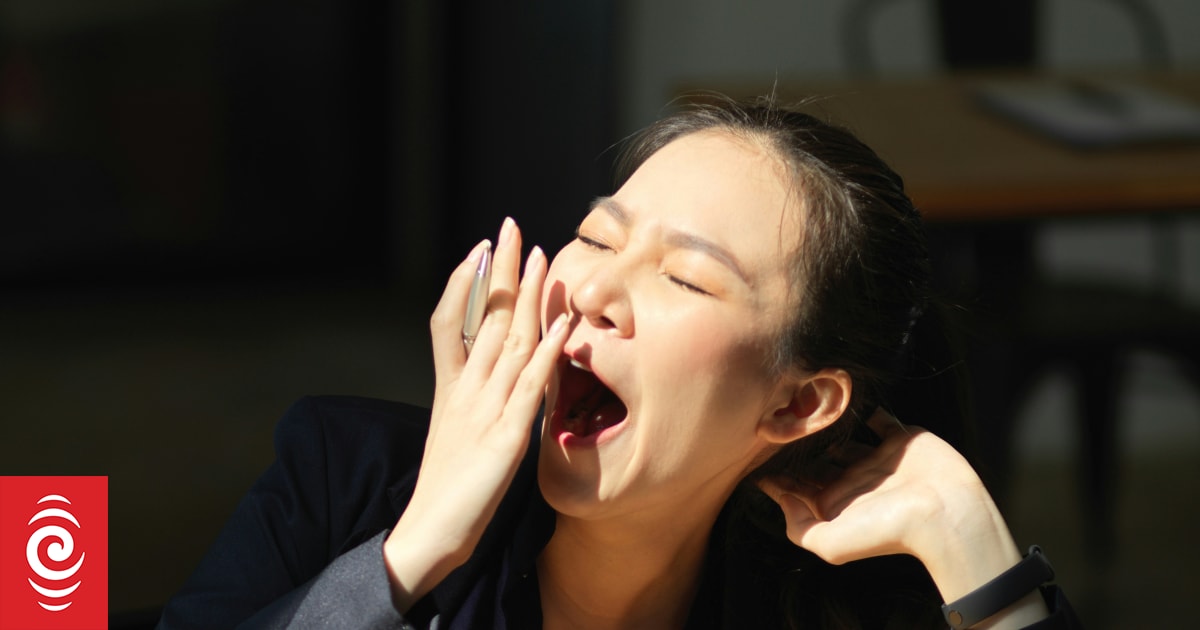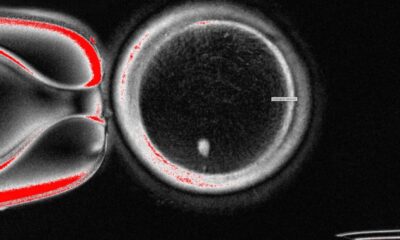World
Researchers Explore Causes of Common Sleep Phenomenon: Hypnic Jerks

Many individuals experience a sudden involuntary twitch or jerk while drifting off to sleep, known as a hypnic jerk. This phenomenon, often accompanied by a sensation of falling, is reported by an estimated 70 percent of the population at some point in their lives. Understanding the underlying causes of hypnic jerks has become a topic of interest among sleep researchers.
As the body transitions from wakefulness to sleep, the nervous system begins to relax. During this process, the brain may misinterpret the muscular relaxation as a sensation of falling, prompting a rapid and involuntary response. This response leads to the characteristic hypnic jerk, which typically affects one side of the body and is generally painless. In some cases, individuals may experience a tingling or painful sensation.
While hypnic jerks are common and usually not indicative of serious health issues, persistent occurrences can lead to anxiety and potential sleep disturbances, including insomnia. Research indicates that hypnic jerks may be more prevalent in individuals with certain conditions, such as Parkinson’s disease. A 2016 study highlighted the possibility that hypnic jerks could manifest in the early stages of the disease; however, they are unlikely to occur without other notable symptoms like changes in movement or REM sleep behavior disorder.
Link to Medications and Lifestyle Factors
Frequent hypnic jerks have also been associated with some prescription medications, particularly selective serotonin reuptake inhibitors (SSRIs), which include drugs such as escitalopram, sertraline, and fluoxetine. Although this side effect is considered rare, anecdotal evidence indicates that stopping these medications often resolves the issue. Individuals experiencing hypnic jerks while taking these medications should consult their prescribing doctor for guidance.
In addition to medications, lifestyle factors can increase the likelihood of experiencing hypnic jerks. Ensuring good sleep hygiene, which includes maintaining a consistent sleep schedule, managing stress, and avoiding stimulating substances, can help mitigate these occurrences. Factors such as caffeine intake and the use of recreational drugs like cocaine have also been linked to hypnic jerks.
The insights into hypnic jerks are supported by experts in sleep health. Yaqoot Fatima, a Professor of Sleep Health at the University of the Sunshine Coast, along with Alexandra Metse, a Senior Lecturer in Psychology, and Daniel Sullivan, a Lecturer in Clinical Psychology at Griffith University, emphasize that while hypnic jerks are generally harmless, they can impact sleep quality when they occur frequently. Their ongoing research aims to deepen the understanding of this common sleep phenomenon, providing valuable information to both medical professionals and the wider public.
Ultimately, while hypnic jerks can be startling, they are a normal part of the sleep process for many. Awareness of their causes and associated factors can help individuals manage their sleep environment and reduce the likelihood of experiencing these disruptive twitches.
-

 Sports2 months ago
Sports2 months agoNetball New Zealand Stands Down Dame Noeline Taurua for Series
-

 Entertainment2 months ago
Entertainment2 months agoTributes Pour In for Lachlan Rofe, Reality Star, Dead at 47
-

 Entertainment4 weeks ago
Entertainment4 weeks agoNew ‘Maverick’ Chaser Joins Beat the Chasers Season Finale
-

 Sports6 days ago
Sports6 days agoEli Katoa Rushed to Hospital After Sideline Incident During Match
-

 Sports2 months ago
Sports2 months agoSilver Ferns Legend Laura Langman Criticizes Team’s Attitude
-

 Politics1 month ago
Politics1 month agoNetball NZ Calls for Respect Amid Dame Taurua’s Standoff
-

 Entertainment2 months ago
Entertainment2 months agoKhloe Kardashian Embraces Innovative Stem Cell Therapy in Mexico
-

 Sports4 days ago
Sports4 days agoJamie Melham Triumphs Over Husband Ben in Melbourne Cup Victory
-

 World3 months ago
World3 months agoPolice Arrest Multiple Individuals During Funeral for Zain Taikato-Fox
-

 Sports3 months ago
Sports3 months agoGaël Monfils Set to Defend ASB Classic Title in January 2026
-

 Entertainment1 month ago
Entertainment1 month agoTyson Fury’s Daughter Venezuela Gets Engaged at Birthday Bash
-

 Sports1 month ago
Sports1 month agoHeather McMahan Steps Down as Ryder Cup Host After Controversy





















